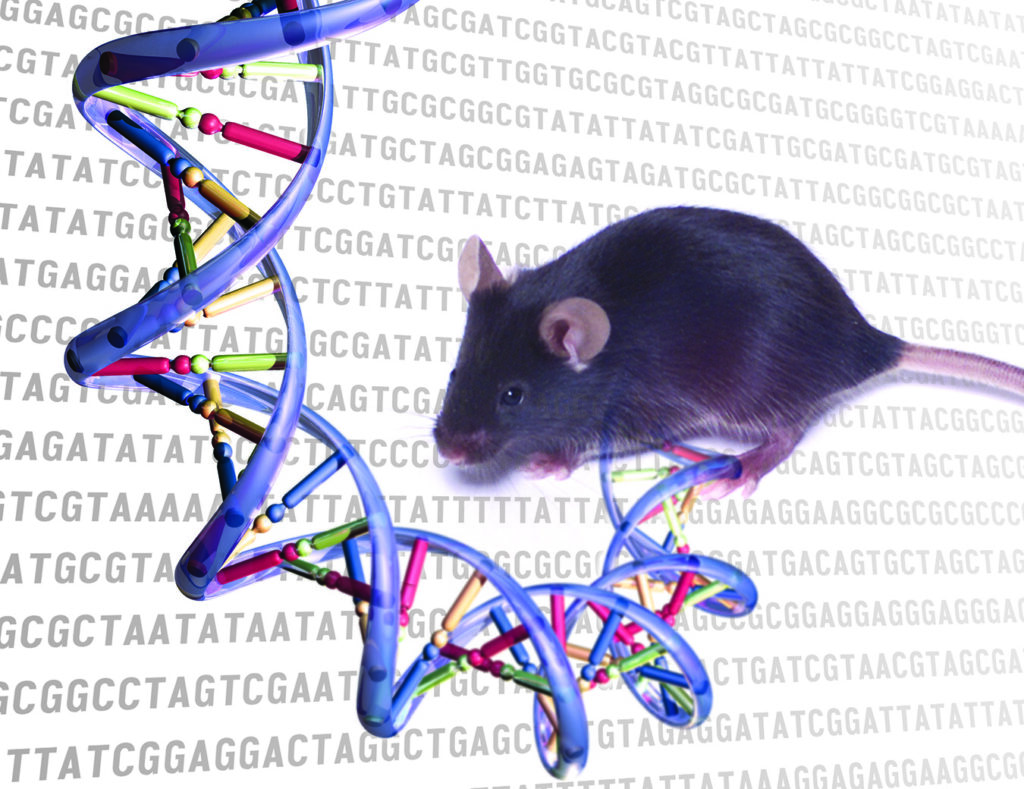Does The US Government Fund Transgender Mouse Research? A Comprehensive Look

Table of Contents
Understanding the Research: What is Transgender Mouse Research?
"Transgender mouse research" is a somewhat misleading term. It doesn't involve creating mice that identify as a different gender. Instead, it focuses on using mice as model organisms to study the complex biological mechanisms underlying sex determination, hormonal manipulation, and sexual differentiation. These studies are crucial for understanding fundamental biological processes relevant to human health. The research uses various techniques including:
- Studies on sex hormone effects on development: Examining how exposure to different levels of hormones like estrogen and testosterone during critical developmental windows affects the physical and behavioral characteristics of mice.
- Research into genetic factors influencing sex characteristics: Investigating the roles of specific genes and genetic mutations in determining sex characteristics, providing insights into disorders of sex development (DSD) in humans.
- Investigations into the impact of environmental factors on sexual differentiation: Exploring how external factors, such as exposure to endocrine disruptors, influence sexual development in mice, providing a model for understanding the effects of environmental toxins on human health.
The ultimate purpose is not to create "transgender" mice, but to unravel the intricate biological processes that govern sex development and differentiation. This knowledge is invaluable for addressing a range of human health challenges.
Government Funding Sources: Where Does the Money Come From?
Several key US government agencies provide funding for biomedical research, including research relevant to sex differentiation and development. Major players include:
- The National Institutes of Health (NIH): The NIH, a part of the US Department of Health and Human Services, is the primary federal agency supporting basic, clinical, and translational biomedical research. They allocate significant funding through grants to researchers across various institutions.
- The National Science Foundation (NSF): The NSF supports fundamental research and education across all fields of science and engineering, including those with implications for understanding biological processes like sex determination.
These agencies utilize a rigorous peer-review process to assess grant applications. Scientists submit detailed proposals outlining their research plans, methodology, and expected outcomes. These proposals are then reviewed by experts in the field who evaluate their scientific merit, feasibility, and potential impact. Securing "government grants" and "research funding" is highly competitive, requiring robust scientific justification. While specific grant examples related to "transgender mouse research" are difficult to pinpoint due to the imprecise terminology, numerous grants are awarded annually for research on sex determination, hormonal effects, and genetic influences on development—all directly relevant areas.
The Ethical Considerations: Addressing Public Concerns
Animal research, especially involving hormonal manipulation or genetic modification, inevitably raises ethical concerns. Transparency and accountability in research funding and data sharing are paramount. The use of government funding necessitates adherence to strict ethical guidelines and regulations designed to minimize animal suffering and ensure humane treatment. Public perception often lags behind scientific advancements, leading to misconceptions and anxieties. Open communication and public engagement are crucial to address these concerns. Addressing the ethical concerns proactively and transparently builds trust and fosters a productive dialogue. Alternative approaches, such as computational modeling and in vitro studies, are also being explored to reduce reliance on animal models where possible.
The Broader Scientific Context: Relevance to Human Health
Transgender mouse research, more accurately described as research on sex differentiation and development, has significant implications for human health. Findings from these studies provide crucial insights into:
- Disorders of Sex Development (DSD): Understanding the genetic and hormonal factors contributing to DSD in mice can inform the development of better diagnostic tools and treatments for individuals with these conditions.
- Infertility: Research on sex hormone action and reproductive development in mice contributes to our understanding of infertility and the development of new fertility treatments.
- Certain cancers: Some cancers are hormone-dependent, and studying the mechanisms of hormone action in mice can help develop more effective cancer therapies.
This "translational research" bridges the gap between basic biological discoveries in mice and their application to improve human health and well-being. The benefits to society are substantial, offering potential for improved diagnostics, treatments, and a better understanding of complex biological processes.
Conclusion
In conclusion, while the term "transgender mouse research" might be misleading, substantial US government funding supports research on the fundamental biological processes of sex determination, hormonal influence, and sexual differentiation, using mice as model organisms. This research is not about creating "transgender" mice but about understanding crucial aspects of human biology with significant implications for human health. Despite public misconceptions, this research holds immense scientific value and offers substantial potential benefits for addressing various health conditions. Learn more about transgender mouse research, understand government funding of scientific research, and explore the ethical considerations of animal research to foster a more informed and evidence-based understanding of these complex issues.

Featured Posts
-
 Are We Normalizing Disaster The Los Angeles Wildfires And The Gambling Culture
May 10, 2025
Are We Normalizing Disaster The Los Angeles Wildfires And The Gambling Culture
May 10, 2025 -
 Enquete Apres La Chute Mortelle D Un Jeune Ouvrier A Dijon
May 10, 2025
Enquete Apres La Chute Mortelle D Un Jeune Ouvrier A Dijon
May 10, 2025 -
 A Shared European Nuclear Shield Frances Perspective
May 10, 2025
A Shared European Nuclear Shield Frances Perspective
May 10, 2025 -
 Us Ipo Filing Omada Health And The Andreessen Horowitz Impact
May 10, 2025
Us Ipo Filing Omada Health And The Andreessen Horowitz Impact
May 10, 2025 -
 Omada Healths Us Ipo Filing What Andreessen Horowitzs Backing Means
May 10, 2025
Omada Healths Us Ipo Filing What Andreessen Horowitzs Backing Means
May 10, 2025
